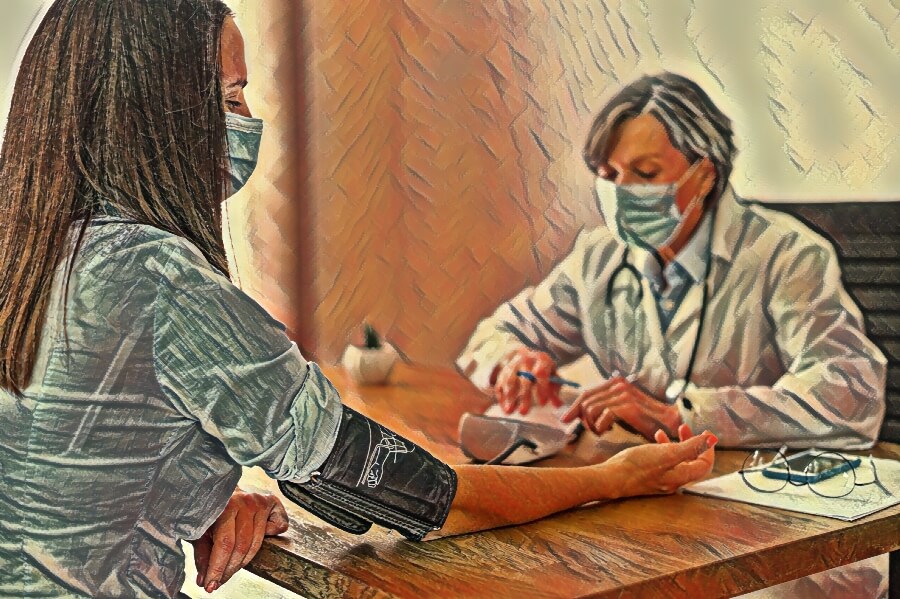Back in Victorian times, “female hysteria” was the common diagnosis for everything from anxiety, insomnia, or sexual desire. You would think we were far past that kind of knuckle-dragging attitude, but apparently not. A new report from the European Society of Cardiology says that high blood pressure in women is too often dismissed as stress or menopause-related.
“High blood pressure is called hypertension in men but in women it is often mistakenly labelled as ‘stress’ or ‘menopausal symptoms’,” said author Professor Angela Maas, director of the Women’s Cardiac Health Program, Radboud University Medical Center in the Netherlands. “We know that blood pressure is treated less well in women compared to men, putting them at risk for atrial fibrillation, heart failure and stroke–which could have been avoided.”
“Physicians should intensify the detection of hypertension in middle-aged women,” the report urges. Up to 50 percent of women develop high blood pressure before the age of 60, but the symptoms, such as heart palpitations–are often attributed to menopause.
Read More: Here’s Why Seeing a Female Doctor Might Just Save Your Life
Menopause and High Blood Pressure: The Real Risks
“A woman’s life provides clues that you need to start early with prevention,” said Maas. “We have to assess female patients differently to men, and not just ask about high cholesterol. This will enable us to classify middle-aged women as high-risk or lower risk for cardiovascular disease.”
For example, pre-eclampsia in pregnancy is linked with a four-fold increase in heart failure and hypertension and a doubled risk of stroke. Women who have an early, natural (as opposed to surgically induced) menopause before 40 are also more likely to develop cardiovascular disease. Each year before that benchmark age is associated with a three percent increase in risk. Autoimmune inflammatory conditions such as rheumatoid arthritis and lupus are more common in women compared to men and increase cardiovascular risk around menopause.
Be Careful with the Hormones
“There are several phases of life when we can identify subgroups of high-risk women,” said Maas. “High blood pressure during pregnancy is a warning sign that hypertension may develop when a woman enters menopause and it is associated with dementia many decades later. If blood pressure is not addressed when women are in their 40s or 50s, they will have problems in their 70s when hypertension is more difficult to treat.”
While hormone replacement therapy (HRT) can relieve symptoms such as night sweats and hot flashes in women over 45, the report authors recommend a woman get her cardiovascular risk factors assessed before starting HRT. Hormones are not recommended for women with high cardiovascular risk, nor for those who’ve had a stroke, heart attack, or blood clot.
Collaboration between cardiologists, gynecologists, and endocrinologists is needed to provide the best care to female patients, noted Maas. But educating yourself on your body and risk factors is essential too, and don’t be shy about speaking up about your medical history. “Women can help their doctors prevent heart problems and make earlier diagnoses, Maas said. “By mentioning issues like complicated pregnancies and early menopause and monitoring their own blood pressure.”
Read More: Menopause and Panic Attacks: What’s the Connection?





















0 Comments